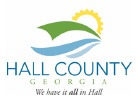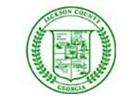The Federal Government requires that urban areas with populations greater than 50,000 establish a Metropolitan Planning Organization (MPO). After the 2000 U.S. Census, the Gainesville Urban Area (2000 census population of 88,680) was designated. The urban area jurisdictions of Flowery Branch, Gainesville, Oakwood and Hall County joined together to support the designation of the Hall County Planning Department as host of the new MPO, and that designation was approved by the Governor on February 25, 2003. Following the growth seen in the 2010 Census, Jackson County, Braselton, and Hoschton became urbanized areas and chose to join the Gainesville-Hall MPO. Currently, the GHMPO planning area covers all of Hall County and the western third of Jackson County, including all municipalities.
GHMPO is an intergovernmental agency coordinating transportation planning for jurisdictions in Hall County and the western portion of Jackson County.
In addition to the Policy Committee, GHMPO has the Technical Coordinating Committee (TCC) and the Citizens Advisory Committee (CAC).
The Policy Committee is the decision making body for the organization. It is made up of the following officials or their designees:
Mayor, City of Gainesville
Mayor, City of Flowery Branch
Mayor, City of Oakwood
Chairperson, Hall County Commission
District 1 Commissioner, Hall County Commission
District 4 Commissioner, Hall County Commission
Chairperson, Jackson County Board of Commissioners
Commissioner, Georgia Department of Transportation
The Technical Coordinating Committee (TCC) provides recommendations from a technical perspective on plans and programs adopted by GHMPO. The voting membership is made up of administrators, engineers, and planners from the member jurisdictions, as well as representatives from Hall Area Transit and the Georgia Department of Transportation (GDOT). The non-voting membership includes representatives of various State and Federal transportation agencies, local law enforcement, school boards and major local institutions.
The Citizens Advisory Committee (CAC) provides recommendations from the public’s perspective, and consists of 19 appointees from the member jurisdictions as follows: Hall County (8), Gainesville (5), Flowery Branch (2), Oakwood (2), Braselton (1), and Jackson County (1).
GHMPO staff, housed in the Hall County Public Works Department, administers the planning program and provides technical guidance and administrative support to the committees.
MPOs are primarily funded with Metropolitan Planning funds from the Federal Highway Administration (PL funds) and the Federal Transit Administration (Section 5303 funds). These funds are matched at a ratio of 80% federal to 20% state/local.
Yes, all meetings of the GHMPO committees are open to the public. For meeting information visit the committees section of our website.
The Metropolitan Transportation Plan (MTP) is a collective effort to address the development of a community-wide transportation system. The Plan proposes a balanced transportation system, taking into account considerations such as personal mobility, growth management, regional economic development, neighborhood preservation, environmental concerns and citizen participation. The goals are consistent with the policies established by local agencies and jurisdictions. This plan was previously called the Regional Transportation Plan (RTP).
The TIP is a four-year plan detailing the expenditure of state and Federal transportation funds within the GHMPO planning area. The projects come from the MTP with higher priority projects being placed on the TIP project list. Projects must be approved by GHMPO and programmed into the TIP in order to be implemented.
The TIP contains information on funded project improvements to be made over the next four years. The TIP has a complete project list and details of specific projects. See the 2024-2027 TIP.
Traffic counts record the number of vehicles using the roadway. Most traffic counts are collected by the Georgia Department of Transportation (GDOT) and are used to evaluate the level of service of a roadway or to plan for improvements or resurfacing. GDOT conducts annual traffic counts and stores them in an interactive map. Simply zoom in on the desired road and click for information on the nearest traffic monitor location on to see the Average Annual Daily Traffic (AADT). Click here for GDOT’s Traffic Counts webpage.
If walking or biking are not options for you, transit choices are available.
In Hall County, Hall Area Transit (HAT) operates a microtransit service called WeGo, which is a form of transit that is possible through technology to be both on-demand and flexible in route, similar to an Uber or Lyft. For more information on WeGo, and to download the mobile app for Android or iOS, visit the WeGo information page. For more information, visit Hall Area Transit.
In Jackson County, Jackson County Transit operates a Shared-Ride Service. For more details visit Jackson County Transit.
The GHMPO website is great place to start for public involvement. We also hold regularly scheduled committee meetings and periodic open house meetings on specific projects, and we always seek public review and comment for the TIP and MTP during revisions. Our meetings are open to the public and upcoming committee agendas are posted on our website. If you cannot join us, you are welcome to phone us at 770-297-5541, contact us at www.ghmpo.org, or send a letter to:
Gainesville-Hall Metropolitan Planning Organization
P.O. Drawer 1435
Gainesville, GA 30503
After a plan alignment is shown on the thoroughfare plan, it may take many years for the project to be needed and funded. Here are some of the steps involved in the highway construction process:
- Congestion and need are evaluated by GDOT.
- Traffic studies and other planning is conducted.
- Alternate route studies are collected.
- Preliminary relocation studies are collected and evaluated.
- An environmental impact study is prepared.
- Preliminary engineering is accomplished and public hearings are held.
- Location of the corridor is approved.
- Design and detailed plans are prepared.
- Right of Way personnel contacts property owners.
- Real estate market studies, evaluations, appraisals and detailed relocation studies are conducted.
- Comprehensive appraisal and evaluation review by Right of Way representatives is conducted.
- Negotiations begin. Needed property is acquired by agreed settlement with the owner. Relocation assistance is provided when applicable.
- Payment is made to the property owner and the title is transferred.
- Condemnation of property is instituted, if necessary.
- Appeals are made, if necessary, with regard to real property tax reimbursement.
- Appeals are made, if necessary, with regard to relocation benefits.
- The highway project is advertised to contractors to submit their bids.
- The bids are reviewed by department members and contracts are awarded by GDOT.
- The highway is built.
- The highway is opened for public use.
Typically, it takes 7-12 years to build a project after it is funded. This timeframe could be shorter or longer depending on the complexity of the project.
A full update to the Metropolitan Transportation Plan (MTP) takes place every five years. Updates to the Transportation Improvement Program (TIP) can occur as often necessary prior to the next MTP update through an amendment process approved by the MPO committees.
Yes, just send an e-mail message to Joseph Boyd, Transportation Planning Director, at jboyd@hallcounty.org. You will receive notices regarding upcoming meetings, public notices, and special events being held by the Gainesville-Hall MPO.
Please contact your local public works department:
Hall County Public Works Department
City of Gainesville Public Works Department
City of Flowery Branch Public Works Department
City of Oakwood Public Works Department
If you cannot find project details in the MTP or the TIP, it is probably a locally funded project, which does not have to be included in the MPO’s plans. Please contact the following departments for further assistance:
Hall County Public Works Department
City of Gainesville Public Works Department
City of Flowery Branch Public Works Department
City of Oakwood Public Works Department
All projects funded in part by state and/or federal sources are listed. Projects using only local funds are generally not listed, so for more information on those, please contact the following departments for further assistance:
Hall County Public Works Department
City of Gainesville Public Works Department
City of Flowery Branch Public Works Department
City of Oakwood Public Works Department







